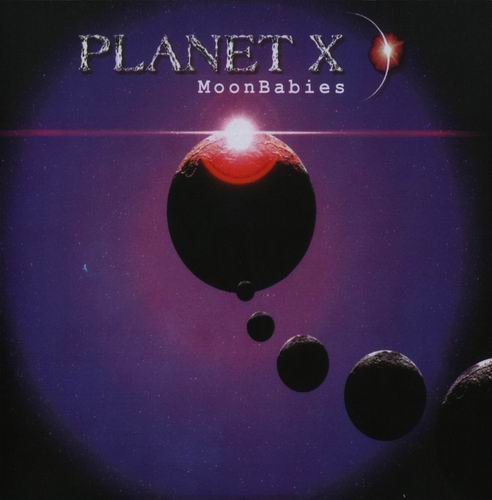Sly & The Family Stone - Every Dog Has His Day (1991)

Artist: Sly & The Family Stone
Title: Every Dog Has His Day
Year Of Release: 1991
Label: Xelon Entertainment
Genre: R&B, Funk, Soul
Quality: Mp3 320 / Flac (tracks)
Total Time: 43:05
Total Size: 107/242 Mb
WebSite: Album Preview
Tracklist:Title: Every Dog Has His Day
Year Of Release: 1991
Label: Xelon Entertainment
Genre: R&B, Funk, Soul
Quality: Mp3 320 / Flac (tracks)
Total Time: 43:05
Total Size: 107/242 Mb
WebSite: Album Preview
01. (I'll Remember) In The Still of the Night 2:54
02. Searchin' 2:30
03. Don't Say I Didn't Warn You 2:21
04. Ain't That Lovin' You Baby 2:18
05. Swim 2:12
06. Every Dog Has His Day 2:10
07. Suki Suki Pt. 1 2:08
08. Suki Suki Pt. 2 1:44
09. Seventh Son 2:18
10. I Can't Turn You Loose 3:13
11. Take My Advice 2:05
12. Watermelon Man 3:04
13. I Ain't Got Nobody 2:42
14. If You Were Blue 2:10
15. Rock Dirge 3:32
16. Hi Love 2:29
17. Life of Fortune and Fame 3:16
Sly & the Family Stone harnessed all of the disparate musical and social trends of the late '60s, creating a wild, brilliant fusion of soul, rock, R&B, psychedelia, and funk that broke boundaries down without a second thought. Led by Sly Stone, the Family Stone was comprised of men and women, and blacks and whites, making the band the first fully integrated group in rock's history. That integration shone through the music, as well as the group's message. Before Stone, very few soul and R&B groups delved into political and social commentary; after him, it became a tradition in soul, funk, and hip-hop. And, along with James Brown, Stone brought hard funk into the mainstream. The Family Stone's arrangements were ingenious, filled with unexpected group vocals, syncopated rhythms, punchy horns, and pop melodies. Their music was joyous, but as the '60s ended, so did the good times. Stone became disillusioned with the ideals he had been preaching in his music, becoming addicted to a variety of drugs in the process. His music gradually grew slower and darker, culminating in 1971's There's a Riot Going On, which set the pace for '70s funk with its elastic bass, slurred vocals, and militant Black Power stance. Stone was able to turn out one more modern funk classic, 1973's Fresh, before slowly succumbing to his addictions, which gradually sapped him of his once prodigious talents. Nevertheless, his music continued to provide the basic template for urban soul, funk, and even hip-hop well into the '90s.
Sly Stone (born Sylvester Stewart, March 15, 1944) and his family moved from his home state of Texas to San Francisco in the '50s. He had already begun to express an interest in music, and when he was 16, he had a regional hit with "Long Time Away." Stone studied music composition, theory, and trumpet at Vallejo Junior College in the early '60s; simultaneously, he began playing in several groups on the Bay Area scene, often with his brother Fred. Soon, he had become a disc jockey at the R&B station KSOL, later switching to KDIA. The radio appearances led to a job producing records for Autumn Records. While at Autumn, he worked with a number of San Franciscan garage and psychedelic bands, including the Beau Brummels, the Great Society, Bobby Freeman, and the Mojo Men.
During 1966, Stone formed the Stoners, which featured trumpeter Cynthia Robinson. Though the Stoners didn't last long, he brought Robinson along as one of the core members of his next group, Sly & the Family Stone. Formed in early 1967, the Family Stone also featured Fred Stewart (guitar, vocals), Larry Graham, Jr. (bass, vocals), Greg Errico (drums), Jerry Martini (saxophone), and Rosie Stone (piano), who all were of different racial backgrounds. The group's eclectic music and multiracial composition made them distinctive from the numerous flower-power bands in San Francisco, and their first single, "I Ain't Got Nobody," became a regional hit for the local label Loadstone. The band signed with Epic Records shortly afterward, releasing their debut album, A Whole New Thing, by the end of the year. The record stiffed, but the follow-up, Dance to the Music, generated a Top Ten pop and R&B hit with its title track early in 1968. Life followed later in 1968, but the record failed to capitalize on its predecessor's success. "Everyday People," released late in 1968, turned their fortunes back around, rocketing to the top of the pop and R&B charts and setting the stage for the breakthrough success of 1969's Stand!
Featuring "Everyday People," "Sing a Simple Song," "Stand," and "I Want to Take You Higher," Stand! became the Family Stone's first genuine hit album, climbing to number 13 and spending over 100 weeks on the charts. Stand! also marked the emergence of the political bent in Stone's songwriting ("Don't Call Me Nigger, Whitey"), as well as the development of hard-edged, improvisational funk like "Sex Machine." The Family Stone quickly became known as one of the best live bands of the late '60s, and their performance at Woodstock was widely hailed as one of the festival's best. The non-LP singles "Hot Fun in the Summertime" and "Thank You (Falettinme Be Mice Elf Agin)" b/w "Everybody Is a Star" became hits, reaching number two and number one respectively in late 1969/early 1970. Both singles were included on Greatest Hits, which became a number two record upon its fall 1970 release. While the group was at the height of its popularity, Sly was beginning to unravel behind the scenes. Developing a debilitating addiction to narcotics, Stone soon became notorious for arriving late for concerts, frequently missing the shows all together.
Stone's growing personal problems, as well as his dismay with the slow death of the civil rights movement and other political causes, surfaced on There's a Riot Goin' On. Though the album shot to number one upon its fall 1971 release, the record -- including "Family Affair," Stone's last number one single -- was dark, hazy, and paranoid, and his audience began to shrink slightly. During 1972, several key members of the Family Stone, including Graham and Errico, left the band; they were replaced by Rusty Allen and Andy Newmark, respectively. The relatively lighter Fresh appeared in the summer of 1973, and it went into the Top Ten on the strength of the Top Ten R&B hit "If You Want Me to Stay." Released the following year, Small Talk was a moderate hit, reaching number 15 on the charts and going gold, but it failed to generate a big hit single. High on You, released in late 1975 and credited only to Sly Stone, confirmed that his power and popularity had faded. "I Get High on You" reached the R&B Top Ten, but the album made no lasting impact.
Disco had overtaken funk in terms of popularity, and even if Sly wanted to compete with disco, he wasn't in shape to make music. He had become addicted to cocaine, his health was frequently poor, and he was often in trouble with the law. His recordings had slowed to a trickle, and Epic decided to close out his contract in 1979 with Ten Years Too Soon, a compilation of previously released material that had the original funky rhythm tracks replaced with disco beats. Stone signed with Warner Brothers that same year, crafting the comeback effort Back on the Right Track with several original members of the Family Stone, but the record was critically panned and a commercial failure. In light of the album's lack of success, Stone retreated even further, eventually joining forces with George Clinton on Funkadelic's 1981 album The Electric Spanking of War Babies. Following the album's release, Stone toured with Clinton's P-Funk All-Stars, which led him to embark on his own tour, as well as a stint with Bobby Womack. The culmination of this burst of activity was 1983's Ain't but the One Way, an album that was ignored. Later that year, Stone was arrested for cocaine possession; the following year, he entered rehab.
Stone appeared on Jesse Johnson's 1986 R&B hit "Crazay." The following year, he dueted with Martha Davis on "Love & Affection" for the Soul Man soundtrack; he also he recorded "Eek-a-Bo-Static," a single that didn't chart. Stone was arrested and imprisoned for cocaine possession by the end of 1987, and he was never able to recover from the final arrest. Stone continued to battle his addiction, with varying degrees of success. By his 1993 induction to the Rock & Roll Hall of Fame, he had disappeared from public view. Avenue Records gave Stone a recording contract in 1995, but nothing would be recorded.
Sly Stone (born Sylvester Stewart, March 15, 1944) and his family moved from his home state of Texas to San Francisco in the '50s. He had already begun to express an interest in music, and when he was 16, he had a regional hit with "Long Time Away." Stone studied music composition, theory, and trumpet at Vallejo Junior College in the early '60s; simultaneously, he began playing in several groups on the Bay Area scene, often with his brother Fred. Soon, he had become a disc jockey at the R&B station KSOL, later switching to KDIA. The radio appearances led to a job producing records for Autumn Records. While at Autumn, he worked with a number of San Franciscan garage and psychedelic bands, including the Beau Brummels, the Great Society, Bobby Freeman, and the Mojo Men.
During 1966, Stone formed the Stoners, which featured trumpeter Cynthia Robinson. Though the Stoners didn't last long, he brought Robinson along as one of the core members of his next group, Sly & the Family Stone. Formed in early 1967, the Family Stone also featured Fred Stewart (guitar, vocals), Larry Graham, Jr. (bass, vocals), Greg Errico (drums), Jerry Martini (saxophone), and Rosie Stone (piano), who all were of different racial backgrounds. The group's eclectic music and multiracial composition made them distinctive from the numerous flower-power bands in San Francisco, and their first single, "I Ain't Got Nobody," became a regional hit for the local label Loadstone. The band signed with Epic Records shortly afterward, releasing their debut album, A Whole New Thing, by the end of the year. The record stiffed, but the follow-up, Dance to the Music, generated a Top Ten pop and R&B hit with its title track early in 1968. Life followed later in 1968, but the record failed to capitalize on its predecessor's success. "Everyday People," released late in 1968, turned their fortunes back around, rocketing to the top of the pop and R&B charts and setting the stage for the breakthrough success of 1969's Stand!
Featuring "Everyday People," "Sing a Simple Song," "Stand," and "I Want to Take You Higher," Stand! became the Family Stone's first genuine hit album, climbing to number 13 and spending over 100 weeks on the charts. Stand! also marked the emergence of the political bent in Stone's songwriting ("Don't Call Me Nigger, Whitey"), as well as the development of hard-edged, improvisational funk like "Sex Machine." The Family Stone quickly became known as one of the best live bands of the late '60s, and their performance at Woodstock was widely hailed as one of the festival's best. The non-LP singles "Hot Fun in the Summertime" and "Thank You (Falettinme Be Mice Elf Agin)" b/w "Everybody Is a Star" became hits, reaching number two and number one respectively in late 1969/early 1970. Both singles were included on Greatest Hits, which became a number two record upon its fall 1970 release. While the group was at the height of its popularity, Sly was beginning to unravel behind the scenes. Developing a debilitating addiction to narcotics, Stone soon became notorious for arriving late for concerts, frequently missing the shows all together.
Stone's growing personal problems, as well as his dismay with the slow death of the civil rights movement and other political causes, surfaced on There's a Riot Goin' On. Though the album shot to number one upon its fall 1971 release, the record -- including "Family Affair," Stone's last number one single -- was dark, hazy, and paranoid, and his audience began to shrink slightly. During 1972, several key members of the Family Stone, including Graham and Errico, left the band; they were replaced by Rusty Allen and Andy Newmark, respectively. The relatively lighter Fresh appeared in the summer of 1973, and it went into the Top Ten on the strength of the Top Ten R&B hit "If You Want Me to Stay." Released the following year, Small Talk was a moderate hit, reaching number 15 on the charts and going gold, but it failed to generate a big hit single. High on You, released in late 1975 and credited only to Sly Stone, confirmed that his power and popularity had faded. "I Get High on You" reached the R&B Top Ten, but the album made no lasting impact.
Disco had overtaken funk in terms of popularity, and even if Sly wanted to compete with disco, he wasn't in shape to make music. He had become addicted to cocaine, his health was frequently poor, and he was often in trouble with the law. His recordings had slowed to a trickle, and Epic decided to close out his contract in 1979 with Ten Years Too Soon, a compilation of previously released material that had the original funky rhythm tracks replaced with disco beats. Stone signed with Warner Brothers that same year, crafting the comeback effort Back on the Right Track with several original members of the Family Stone, but the record was critically panned and a commercial failure. In light of the album's lack of success, Stone retreated even further, eventually joining forces with George Clinton on Funkadelic's 1981 album The Electric Spanking of War Babies. Following the album's release, Stone toured with Clinton's P-Funk All-Stars, which led him to embark on his own tour, as well as a stint with Bobby Womack. The culmination of this burst of activity was 1983's Ain't but the One Way, an album that was ignored. Later that year, Stone was arrested for cocaine possession; the following year, he entered rehab.
Stone appeared on Jesse Johnson's 1986 R&B hit "Crazay." The following year, he dueted with Martha Davis on "Love & Affection" for the Soul Man soundtrack; he also he recorded "Eek-a-Bo-Static," a single that didn't chart. Stone was arrested and imprisoned for cocaine possession by the end of 1987, and he was never able to recover from the final arrest. Stone continued to battle his addiction, with varying degrees of success. By his 1993 induction to the Rock & Roll Hall of Fame, he had disappeared from public view. Avenue Records gave Stone a recording contract in 1995, but nothing would be recorded.

![Sam Most - But Beautiful (2025) [Hi-Res] Sam Most - But Beautiful (2025) [Hi-Res]](https://img.israbox.com/img/2025-12/12/n19esmi2zxvr716zw8citn0dv.jpg)

![Machito and His Orchestra - Irving Berlin in Latin America (Remastered Edition 2025) [Hi-Res] Machito and His Orchestra - Irving Berlin in Latin America (Remastered Edition 2025) [Hi-Res]](https://www.dibpic.com/uploads/posts/2025-12/1765784965_moib.jpg)



![Thomas Wenglinski - Something Always Happens (2025) [Hi-Res] Thomas Wenglinski - Something Always Happens (2025) [Hi-Res]](https://www.dibpic.com/uploads/posts/2025-12/1765497916_fg7n35hdbubsa_600.jpg)
